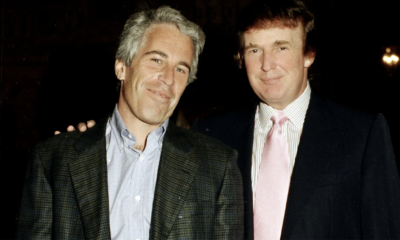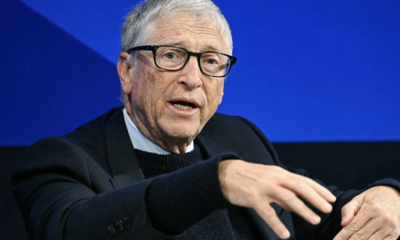News
Nvidia Stock Tumbles After Surprise $5.5 Billion Hit From China Export Ban
Nvidia, the Silicon Valley titan at the forefront of the artificial intelligence (AI) chip race, is facing a major blow. On Tuesday night, the company revealed in a regulatory filing that it expects a $5.5 billion charge due to the U.S. government’s sudden tightening of export controls to China, sending Nvidia stock plummeting by as much as 6.9% in premarket trading on Wednesday.
Surprise Ban on H20 Chips
At the center of the export ban storm is Nvidia’s H20 chip, a graphics processing unit (GPU) specifically designed to comply with U.S. trade restrictions for the Chinese market. However, the U.S. government has now informed Nvidia that a special license will be required to export these chips — a license that, as analysts note, has never been granted for similar GPUs. This abrupt shift has essentially rendered billions of dollars’ worth of chips unsellable, turning a compliance workaround into a massive financial liability.
A Costly Write-Down
According to Jefferies analyst Blayne Curtis, Nvidia is not just facing the immediate $5.5 billion loss this quarter — the real damage could be closer to $10 billion in lost sales over the coming months. Much of the write-down, Curtis explained, is tied to finished or nearly finished inventory, not future orders. That means these chips can’t simply be rerouted or cancelled — they’re now potentially e-waste.
Industry Backlash and Criticism
Wall Street analysts are stunned. The move contradicts recent reports suggesting that U.S. regulators had backed off plans to ban H20 exports following diplomatic engagements, including a now-notable dinner between Nvidia CEO Jensen Huang and former President Donald Trump at Mar-a-Lago. In light of that context, Raymond James analyst Ed Mills called the new restriction “a surprise.”
Bernstein’s Stacy Rasgon went further, criticising the rationale behind the ban. Stacy Rasgon argued that the H20’s performance is actually below that of several Chinese alternatives, including chips from Huawei, suggesting that the ban might inadvertently strengthen Chinese competitors. “A ban essentially hands the Chinese AI market over to Huawei,” he wrote.
Long-Term Consequences for Nvidia
Nvidia has already had to adapt multiple times to U.S. restrictions, developing custom chips like the A800, H800, and now the H20 to maintain access to China’s massive AI market. That market was no small contributor — $17 billion, or 13% of Nvidia’s revenue in fiscal year 2025, came from China.
With the H20 blocked and no clear licensing path ahead, Nvidia’s presence in China could shrink dramatically — and rapidly.
China Trolled Trump with 34% Tariff: Calculated Jab at Trump’s 34 Felony Count in New York?
The Bigger Picture: AI, Geopolitics & Markets
The new controls reflect rising US-China trade war tensions over AI and advanced technology. Chinese AI startups, such as DeepSeek, have leveraged Nvidia’s earlier chips to train their own models at a fraction of the cost seen in the U.S. The concern in Washington is that access to these chips accelerates China’s AI development, potentially threatening national security.
As Nvidia scrambles to reassess its strategy, markets are watching closely as the US-China trade war looms. The chip giant’s meteoric rise has been a pillar of the recent tech rally, but this surprise setback shows just how fragile the AI boom can be when geopolitics meets silicon.










































Pingback: Germany Moves to Block DeepSeek AI, Is EU Crackdown Coming?